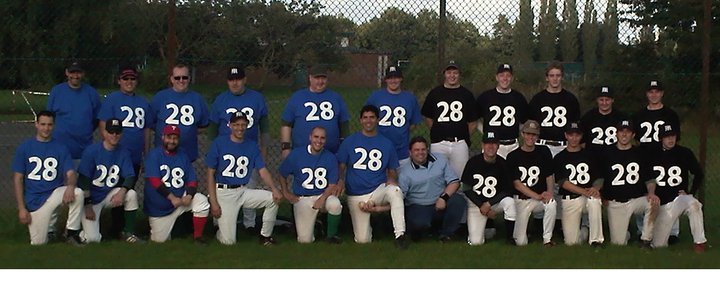Given half a chance, I would probably be residing in a lighthouse somewhere spectacularly remote. Away from the crowds, with my long suffering wife and a pile of books. Although, I reckon she would probably object to such an extreme form of solitude. Undoubtedly, I consider this incredibly useful work, preventing all those vessels out on the ‘big blue wobbly stuff’ from having an impromptu meeting with land. Which is never ideal. Disappointingly, their are fewer and fewer manned lighthouses available in the 21st century, which is a travesty in itself.
Thoughts of a rocky hideaway are indelibly linked to those I had in the 1970’s, roughly from the age of 5. While many of the other boys wanted to be astronauts, firefighters, police officers and the like, I had my heart set on becoming a lighthouse keeper. Tragically, it was a dream that never came to pass. Damn you automation! Admittedly, this may seem like an odd life choice for your average human, however, even at this tender age I clearly had a good grasp of what I needed.
Just imagine, crashing waves onto the rocks, the wind howling, whilst sitting in an old comfy chair, contemplating the age old dilemma, whether to clean the windows or change the lamp first. Obviously, considering it’s a lighthouse, the hub of illumination would be paramount regarding the pecking order of chores. Sadly, these musings are now confined to a daydream, as the reality of life for many of us results in working a relatively normal job and mixing with human beings. Bugger!!!
Admittedly, work and I have never been the best of friends. Wearily, I have staggered from job to job over my working life, in a vain attempt to scratch my persistent employment itch of dissatisfaction. Some of course, have been more rewarding and suitable than others, but each one has provided a plethora of challenges commonly found with autistic workers scattered around the world. Frustratingly, even obtaining a job is incredibly arduous, this is before we even examine specific challenges that surround maintaining meaningful employment.
In New Zealand a study in 2017 reported that less than 10% of people diagnosed with autism were in full-time employment, 10% in part-time work and 20% in voluntary work. Data published by the Office of National Statistics (ONS) in 2020 echoed a similar story, stating only 22% of autistic people in the UK were in any form of paid employment. This compares to 50% of disabled individuals and 80% of non-disabled citizens. Furthermore, in Australia unemployment rates for autistic folk are reported 6 times lower than that of the general population. While I acknowledge that not everyone who is autistic can work, most people who are would like to.
Compounding this problem, autistic people are woefully underemployed, routinely being poorly paid and offered only limited working hours. The vast majority of those on the spectrum, work part-time or simply volunteer at their place of employment. Despite the dire quality of paid work and the hours provided, those who are employed unsurprisingly experience a better quality of life and cognitive performance than those who are not. Well, quelle surprise!
Even among higher functioning or level 1 types, circumstances are still not that great. Although overall employment rates appear to be slightly higher, underemployment and subpar utilisation of skills is still rampant among this group. Despite many of my fellow spectrumites holding ample qualifications; degrees, masters, PhD’s and the like, we still find ourselves criminally under appreciated, working for people who couldn’t make less use of our talents and abilities if they tried.
Throughout the years, I have found myself wading through a neurotypical quagmire of what it means to be a good employee. Prior to my diagnosis, it was even worse, I was acutely aware I didn’t fit in, without definitively knowing why. In fact, I’ve wasted years trying to make sense of workplace politics, mind numbing small talk, and nauseatingly dull department meetings. In which, the dumbest always seem to talk the most, in a desperate attempt to gain promotion and the backing from the powers that be.

Fitting in with the ‘crowd’, was and still is the pinnacle regarding your value as an employee. Turning up for tedious after dinner drinks, pretending to be enthusiastic at the Christmas Party and organising inane social events, are viewed favourably by the corporate hierarchy, regardless of how inept you may be at your job. For me, by far the worst experience that transpires particularly in New Zealand workplaces is ‘Secret Santa’. “Excuse me, do you have bullet to go with that torch you bought me from the $2 shop”? Wistfully, the answer is likely to be a resounding no.
The other pesky thing valued above all by an employer, is persistently turning up. You don’t necessarily have to do bugger all on arrival, as long you waltz through the door with an annoyingly cheerie “mooooorning”!!! Which without doubt, should be punishable by death. Unfortunately, for us poor autistic sods, turning up consistently can be a big ask, putting us at an instant disadvantage. However, a word of warning, don’t ever try to explain why at times it’s like trying to climb Everest while carrying the damn Sherpa on your back, because you will be greeted with, “well everybody finds it hard in the morning”. Which, I usually reply with “oh piss off”, but under my breath, of course, as not to get fired within the first week.
Additionally, trying to avoid the gossips, ladder climbers, lazy bastards and the assortment of office dickheads is a full-time job in itself. Invariably, we autistics are frequently distracted from doing what we are paid to do, primarily because our beloved colleagues insist on talking shite to us, when we are trying to work. Don’t get me wrong, I like to chat at times, but it doesn’t take up 90% of my overall allotted hours, like for some. That’s before they vape, smoke or whatever else they do to fritter the hours away, prior to going home, often early.
Let me state the obvious, bosses and autistic employees are not exactly a great match. Principally, because we tend to use a straight-forward version of an internationally accepted language to communicate, while managers use a dialect of ‘managerese’, commonly known as bollocks. With or without the diagnosis, I suspect bosses have always considered me a bit of a “weirdo”. While viewed with suspicion, I’ve been routinely expected to contribute to the daily ‘bullshittery’ of working life. Alas, each day I patiently await my reward, half an hour of seclusion, commonly referred to as lunch, which is usually enough downtime to get me though the day.
So there you have it, if none of this gets me fired, I’m not overly sure what will. What began in deepest recesses of my mind as a serious investigation of autistic workers in employment, descended into a post work rant. Well, I’ve typed it now, so I’m sticking with it. If anybody autistic or those who are not, manage to extract something meaningful from this, well, good on them. Although indirectly, you may have gleaned that life for an autistic employee is frustrating, often unsatisfactory, socially a minefield and rife for sensory overload. But be aware, this is one persons account, others may well be working in a neurodivergent utopia. But if you ask me, do I still yearn for life in a lighthouse, the answer is an emphatic yes.
























